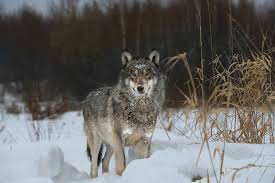February 10, 2024
In a remarkable discovery, mutant wolves residing in the Chernobyl Exclusion Zone (CEZ) have exhibited anti-cancer abilities, offering a glimmer of hope in the fight against this deadly disease. The study, conducted by researchers at Princeton University in the US, sheds light on the extraordinary resilience of Chernobyl’s wildlife, decades after the world’s worst nuclear accident unfolded.
The Chernobyl disaster in 1986 left a devastating legacy of cancer-causing radiation, contaminating the environment and posing grave health risks to humans and animals alike. However, wildlife, including horses, wolves, forests, and fungi, have gradually recolonized the CEZ, adapting to the harsh and radioactive landscape.
Led by evolutionary biologist and ecotoxicologist Cara Love, the research team embarked on a groundbreaking mission to study the Chernobyl wolves and unravel the secrets of their survival in such a hostile environment. Equipped with specialized GPS collars armed with radiation dosimeters, the researchers tracked the wolves’ movements and monitored their exposure to radiation in real-time.
“Our study aimed to understand how Chernobyl wolves cope with generations of exposure to cancer-causing radiation,” explained Love.
The findings revealed that Chernobyl wolves endure daily radiation exposure exceeding six times the legal safety limit for human workers. Despite this heightened risk, the wolves displayed altered immune systems akin to cancer patients undergoing radiation treatment. Most notably, Love identified specific regions of the wolf genome that exhibit resilience to increased cancer risk, offering tantalizing prospects for cancer research.
“While most research focuses on mutations increasing cancer risk, our study seeks to identify protective mutations that enhance the odds of surviving cancer,” emphasized Love.
However, logistical challenges, including the Covid-19 pandemic and regional conflicts, have hindered further research efforts in the CEZ, underscoring the need for safety precautions and collaboration in scientific endeavors.
Presenting the findings at the Annual Meeting of the Society of Integrative and Comparative Biology in Seattle, Washington, Love highlighted the importance of prioritizing safety while pursuing groundbreaking research in challenging environments.
As the world continues to grapple with cancer and other health threats, the resilience of Chernobyl’s mutant wolves offers a beacon of hope, inspiring further exploration and innovation in the quest for effective treatments and cures against deadly diseases.











